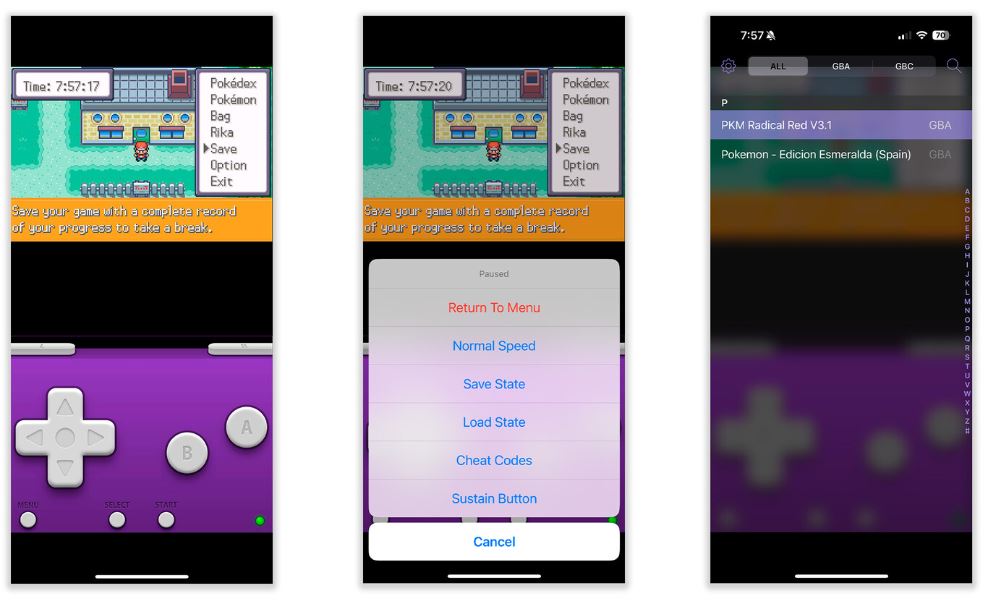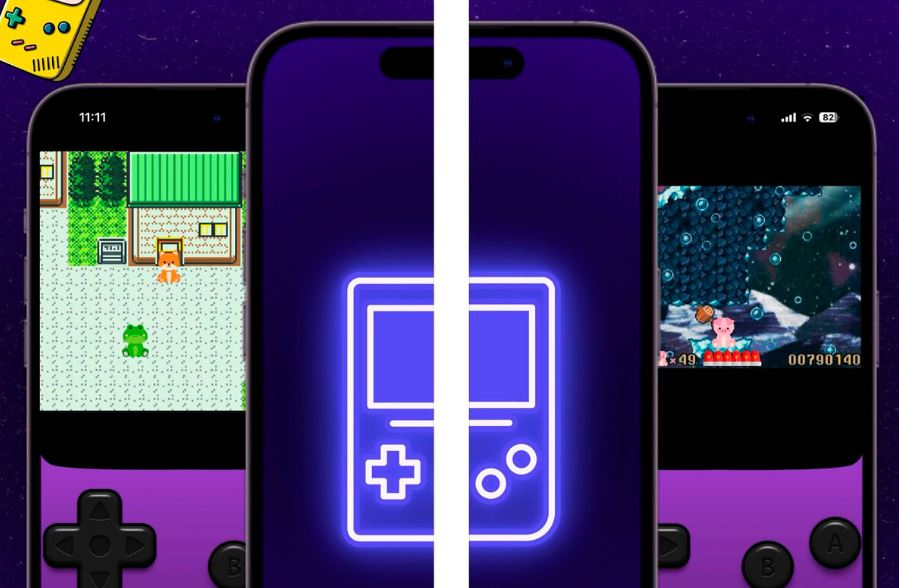iGBA, the first GameBoy emulator available in Apple’s App Store, rapidly gained popularity among iOS users. Within hours of its debut, it soared to become the third most downloaded free application before its sudden disappearance.
The removal of iGBA stemmed from multiple factors, primarily highlighted by developer Riley Testut, creator of the original emulator GBA4iOS. Testut pointed out that iGBA was fraught with spam and copyright infringements, including the unauthorized use of his emulator’s code and excessive advertisements.
Overview of iGBA
iGBA marked a groundbreaking advancement for iOS users, providing the capability to emulate both GameBoy Color and GameBoy Advance games on Apple devices. The emulator’s standout feature was its ability to directly run ROMs from the device’s Files app, a previously unseen functionality on iOS platforms. Additionally, iGBA integrated a built-in search feature, allowing users to conveniently search for ROMs via Google.
Functionality and Interface
iGBA’s functionality was praised for its simplicity and effectiveness. The emulator featured an intuitive interface, allowing users to easily save and access ROMs. Moreover, it offered functionalities such as loading cheat codes and a fast speed mode for smoother gameplay experiences. Speculation emerged regarding potential future enhancements, including improved compatibility with a wider range of ROMs and additional features to enhance user experience.
Reason for Disappearance
The sudden disappearance of iGBA left users bewildered and developers questioning the circumstances. Testut’s public outcry against iGBA’s violations of copyright and proliferation of advertisements prompted swift action from Apple, resulting in the emulator’s removal from the App Store. Users were left without access to the emulator mere hours after its highly anticipated release.

Legal Issues and License Violations
The removal of iGBA brought legal complexities to the forefront, raising questions about license violations and adherence to Apple’s App Store guidelines. Allegations surfaced regarding iGBA’s infringement of the GNU GPLv2 license, which GBA4iOS operates under. Furthermore, Apple cited violations of its App Review Guidelines, specifically sections 4.3 (spam) and 5.2 (copyright infringement), as grounds for iGBA’s removal.
“To be clear, I’m not mad at the developer. What pisses me off is that Apple went to the trouble of changing the App Store rules to allow emulators and then approved a knockoff of my own app, despite which was already prepared to launch Altstore with Delta from March 5”.
Future of Emulators on the App Store
Despite iGBA’s abrupt removal, the possibility remains for future emulators to enter the App Store. Developers may navigate the legal landscape to offer legitimate alternatives, albeit while grappling with challenges surrounding copyright infringement and licensing agreements. The incident underscores the complex nature of providing emulation software on iOS platforms and the need for developers to adhere to legal and ethical standards.
Read Also:
Monumental Strategy Shift: Microsoft Prepares to Launch Xbox Games on PS5 and Nintendo Switch





